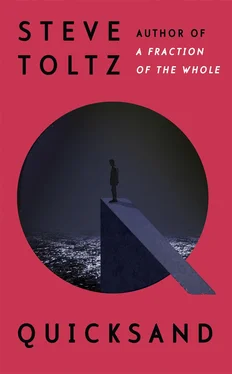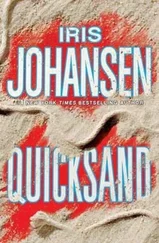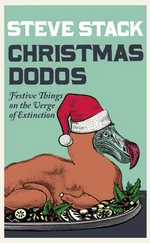‘I never said it would win awards!’ Aldo said.
‘It never even got finished!’
‘I’m sorry, Kaplan. But you accepted the risk. Did I put a gun to your head?’
‘You said I’d quadruple my investment!’
I let this fruitless discussion go on for a few minutes before sending the unhappy investor on his way, injustice clinging to him tightly as he trudged sombrely down the street. Aldo made me stop at a McDonald’s drive-thru for ice. The rain came down hard now and hit the dark streets. Aldo pulled out a pocket-sized first-aid kit he kept on his person at all times, and sprayed antiseptic on his face.
I said, ‘You’re a fucking movie producer now?’
‘Let me tell you something. The people who invest in films hate films. They wouldn’t be caught dead at a cinema.’
After reading about two young men who had produced a horror movie for twenty-five thousand dollars that went on to make over 248 million worldwide, Aldo had penned a screenplay, a period zombie movie called Van Demon’s Land , set in 1788 and featuring four principal groups: colonialists, convicts, Aborigines, and a couple of French explorers. They’d spent six months trying to secure financing and distribution, had the thing cast, shot twenty minutes of raw footage (using Kaplan’s investment), then attempted to use that footage to raise completion funds — to no avail.
‘Seems that guy’s got every right to beat you senseless. Fifty thousand dollars! Where does that fit on your Fair Price Index?’
‘It was impossible,’ Aldo said, rubbing his jaw. ‘Every time I went into meetings with production companies, or with the government film-financing bodies, I hit a snag. The last meeting I went into they said there was too much dialogue. Film’s a visual medium, they said. Well, that just got my nerves up. I said film was a visual medium, you’re absolutely correct, but only until 1927 when it became a visual and sound medium, because that was the year Al Jolson did The Jazz Singer . Yes, but film is a visual medium, they repeated like robots. Unbelievable! So, I said, you haven’t heard of this thing called the talkies? They said, But we don’t understand why the convict William Henry Groom has all these long speeches. Then I said, And I don’t understand why all the film and literature of this country has to have as its main character a silent or laconic type. That’s not like real life. My experience of people is they never shut up!’
Aldo tapped his fingers on the window, maybe at the woman standing at the bus stop. ‘Anyway,’ he went on, ‘that was only one issue. Next they said, You can’t have the zombies eating the Indigenous brains. It’s OK if they eat the brains of the British soldiers, it’s OK if they eat the brains of the British convicts, and we love when they eat the brains of the French explorers, but you can’t have them eating the brains of the Aboriginals. I asked why not, and you know what they said? Cultural sensitivities .’
That was two months ago, and now, as I drove along the shadowed city streets in the convulsing afternoon traffic, it occurred to me that the only person genuinely pleased with the absurd non sequitur of my becoming a police officer was Aldo, who had perhaps foreseen how frequently he would require my assistance. This was without question the most inconvenient alliance of my life, yet at the same time there was nobody else with whom I felt the most real and relaxed version of myself. To be honest, my most relaxed version grated on Tess, and I had begun to fear there was potential for divorce in my future. And Sonja, my sweet little monster: she still worshipped me as little girls do their fathers, but that would draw to an end once puberty got its messy hands on her. And though I could always make friends, I could never again make an old friend — that time had passed for me forever.
And yet I didn’t flash the light or put on the siren as guys on the force all sometimes did to slip through heavy traffic, because, I realised, I was reluctant to come to my old friend’s rescue yet again, or put in a good word for him, or bail him out, or plead for special consideration. Instead of hurrying I took alternative routes, slowed down at yellow lights, let civilians overtake, felt plain relief when a tunnel under construction forced all the cars into a single lane; and when at the lights I allowed a bare-chested methadone addict to clear my windscreen with a quizzical pout, I finally understood how tired I was of being immured in a friendship that was taking such a personal and professional toll. If Aldo perceived himself to be a burden, or thought he had overshot the boundaries of our friendship, he had never given any indication. In fact, he had unwavering confidence that I’d always step up for him at a moment’s notice, and zero qualms about pestering me with the consequences of his unintentional yet frequent clusterfucks. Although it made me his enabler (Tess’s words) I never hesitated or refused him, but even after saving his life or extricating him from whatever jam he was in, he’d only give me the bare minimum of thanks before trotting out incongruous snark, or lighthearted ribbing. Lately his troubles had increased in frequency and seriousness; I felt apprehension at seeing his name on my caller ID, and began to feel taken for granted. The cumulative effect of these favours was to tip the balance of our friendship — as failed writer and destitute entrepreneur we were in the same boat, and I could laugh at his one mishap after another, but as a policeman I seemed to serve only one purpose for him and I was beginning to resent it.
At the station, I walked past the CAUTION: WET FLOOR sign that had been there for months, and into the restrained chaos of three men in wife-beaters, panting, with two sweaty constables standing over them. The men sat as if tight spaces had been drawn around them, afraid to interact. I’d clearly just missed a fight. The desk sergeant stared impassively at me.
‘Your idiot mate’s in there.’
‘What’s the charge?’
‘Wasting police time.’
‘That’s not a crime.’
‘He doesn’t know that.’
He buzzed me through the side door. Aldo was standing beside the wanted posters in the unpleasantly hot and glary sun-blasted corridor. He was wearing a blood-stained T-shirt underneath his old denim jacket, his slight frame bent into a posture of slothful defeat. He was quite a sight. Prematurely balding, prematurely greying, even though, if I remember correctly, he was excruciatingly late to puberty. What a sad and narrow prime he’d had.
‘Here he is,’ he said. ‘Why do you still look like a bus driver in that uniform?’ Aldo gave me something I can only describe as a knowing wink of despair. ‘How’s things? How’s Sonja?’
‘She’s starting to save her tantrums for the most public places with the fewest exits. Tess suspects she’s using our mortification as her secret weapon.’
Aldo laughed. ‘Everyone always says, until you have children you can’t ever understand what it’s like. That’s just because they have no empathy, isn’t it?’
‘I suppose so,’ I said, stepping back. Aldo waved his hands when he talked; he was always knocking people in the side of the head and not apologising. His existence needed room.
‘Be honest, Liam, isn’t fatherhood exactly what you thought it would be?’
‘No, it’s totally different.’
‘Liar!’
‘Just take him home!’ the sergeant barked.
The truth is, fatherhood was exactly what the culture had prepared me for: near-fatal fatigue, geysers of love, the cornered feeling that comes from being The Provider. But whenever Aldo asked about Sonja, I always detected substrates of old grief and even a smidgeon of unacknowledged jealousy that fatherhood had worked out for only one of us. There was also an imperative to change the subject before Aldo threw some awful fact in my face. (Last time, it was the epidemic of precocious puberty in seven-year-old girls.) By the time we stepped outside into an ambush of sunlight, Aldo already had a cigarette lit and was furiously inhaling, as if non-smoking laws were an inalienable human-rights violation. We leaned against my car and Aldo promised to email me a video of a blonde who had trained her pug to breastfeed. I noted with relief that in the ten minutes we had been together he had not mentioned Stella once. That was progress. I thought: Maybe his heart is finally out of quarantine.
Читать дальше











